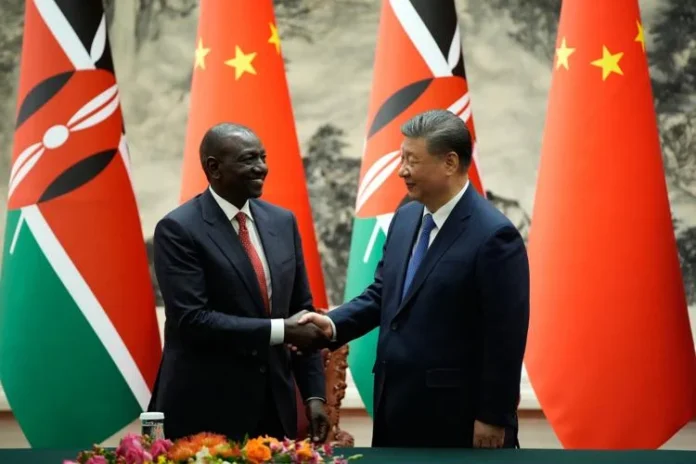Kenya is nearing the conclusion of a trade agreement with China in a strategic move aimed at expanding market access, diversifying its export base, and cushioning the economy from the global disruptions triggered by renewed United States trade tariffs.
The potential deal comes at a time when African nations are reassessing trade partnerships in light of shifting global power dynamics and economic realignments.
The trade negotiations, which have gained momentum in recent months, are expected to result in a framework that boosts Kenyan exports such as tea, coffee, avocados, and textiles to the Chinese market while increasing Chinese investments in infrastructure, manufacturing, and green energy.
Key technical teams from both governments have been engaged in drafting mutually beneficial terms with a focus on reducing non-tariff barriers, facilitating customs clearance, and ensuring quality standards are harmonized.
This push towards deepening ties with China follows the re-imposition of stiff tariffs by the United States on a wide range of goods and commodities, which has forced several economies, including Kenya, to realign their external trade policies.
The US measures, particularly targeting countries with strategic ties to Russia and China, have led to uncertainty over future access to American markets and financing.
China, in contrast, has signaled its openness to expanding cooperation with African countries, offering incentives for trade in local currencies and financing key development projects under its Belt and Road Initiative.
For Kenya, the proposed agreement is expected to unlock new opportunities for value-added exports and reduce its trade deficit with China, which has been historically skewed in favor of Beijing.
The deal also aligns with Kenya’s long-term ambition of becoming a manufacturing and export hub within East Africa. With Chinese firms increasingly relocating production closer to emerging markets, Nairobi is positioning itself as a viable destination due to its improved infrastructure, regional connectivity, and skilled labor force.
As both countries inch toward finalizing the deal, stakeholders in Kenya’s private sector are keen on ensuring that local industries are protected, standards are upheld, and long-term competitiveness is not undermined by an influx of low-cost imports.
The final agreement, once signed, is expected to significantly reshape Kenya’s trade orientation and solidify its position as a key player in China-Africa economic relations.
Written By Ian Maleve














![[Full List] – Safaricom, Absa and Britam Named Among Top Employers for 2026](https://uzalendonews.co.ke/wp-content/uploads/2026/01/Screenshot-2026-01-15-190157-218x150.png)




